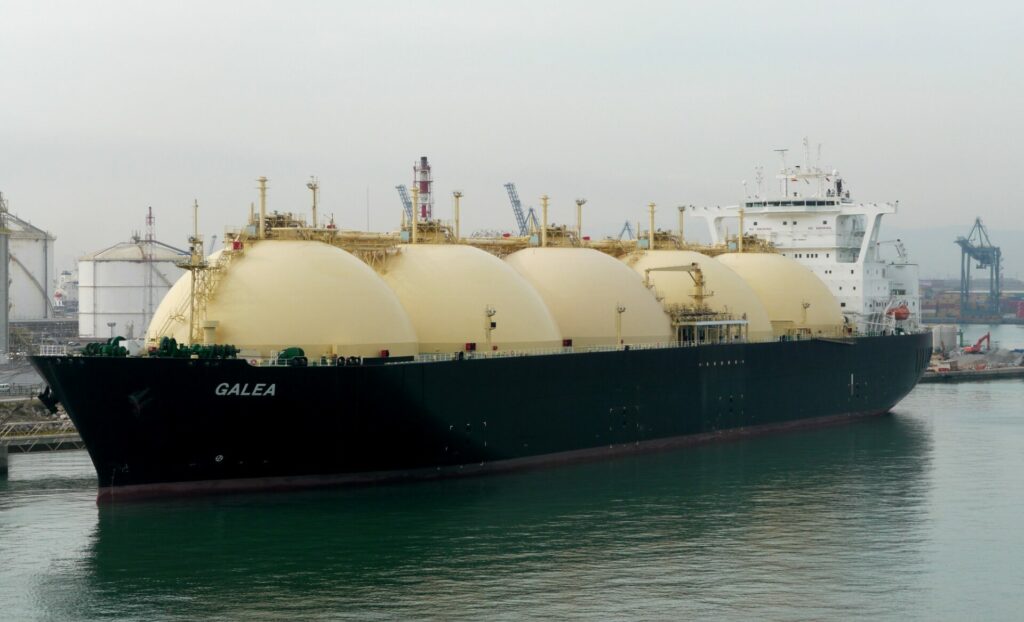As Russia reaps massive profits from rapidly rising energy prices, China has begun to cash in on Western sanctions, buying up massive amounts of cut-price energy from Russia, according to Belgian broadcaster RTBF.
With domestic demand for energy in China falling, in recent months, China has begun reselling its surplus of liquified natural gas (LNG) onto the global market, taking advantage of low-cost purchases from China and selling to Europe for massive profits.
Ultimately, it is Russian gas which Europe is purchasing, with a hefty Chinese markup price.
Europe's scramble for gas
With Russia massively reducing volumes of natural gas through the Nord Stream and Yamal pipelines to Europe, and Russia’s state-owned gas monopoly Gazprom cutting off customers from supply over payment disputes, new sources of gas are finding their way into Europe through unorthodox routes.
In some cases, these gas deliveries are LNG shipped from gas-producing states such as Qatar or the United States. The European Union is also eager to purchase increased shipments of natural gas from Azerbaijan through the Southern Gas Corridor, which links Caspian gas fields to Europe.
However, Europe is now increasingly reliant on Russian gas which is sold through a third party. One of Europe's new largest energy exporters is China, which has traditionally been a net importer of energy. China purchases large volumes of Russian natural gas via Siberian pipelines and is now selling the surplus gas overseas.
According to The Financial Times, Europe is leaning heavily on the eastern nation to reach its objectives of filling its gas reserves before the start of the winter. Economic slowdown, partially driven by China’s zero-Covid policy, which has driven millions into repeated lockdowns, has curbed domestic demand for gas.
Against all odds, the European Commission insists that it has now reached its 80% target for the winter, despite the sky-high price of gas and a reduction in volumes from Russia. The percentage of Russian gas imports to the EU fell from 40% to 9% in the last six months.
Meanwhile, LNG imports into the EU have increased by 60% compared to last year. LNG imports are much more expensive pipeline deliveries, however the concentration of gas stored in the specialised ships allows for large volumes to be transported internationally.
China reaps profits from the war in Ukraine
Once the largest importer of LNG, China is now exporting on a large scale. While it is still unknown how much Chinese LNG has reached Europe, one LNG exporter Sinopec has sold 45 cargoes of LNG, or roughly 3.15 million tonnes. The Financial Times estimates that the true amount of LNG shipped to Europe could equal around 4 million tonnes, or around 7% of Europe’s gas imports in the first half of the year.
All this naturally means that Chinese energy companies are making big profits on the back of the war in Ukraine. Chinese sales on the European gas spot market are valued at around two to three times the normal market price.
In an article published by Chinese state-run media Global Times on 5 September, Chinese authorities now openly talk of the spike in imports of Chinese LNG.
“Chinese LNG companies have increased supplies for overseas markets in response to rising demand from clients from Europe and elsewhere, against the backdrop of what could turn into an unprecedented energy crisis,” the state media stated. The article claims that China had increased purchases by 10% in order to resell them abroad.
These additional purchases, while not explicitly stated, likely come from Russia, where LNG exports have increased 30% compared to last year.
China has remained economically and militarily close to Russia throughout the war in Ukraine. With Russia’s growing isolation on the international stage, the two countries are pushing ahead with deeper economic integration. This may mean that Russia may increasingly lean on the Chinese economy to lessen the impact of international sanctions.
This raises the question, are Chinese energy exports any more “clean” than purchase direct from Russia? Chinese LNG ultimately contributes to generating revenue on behalf of both the Russian and Chinese governments, further increases the price of gas, and offers backdoor routes for Russian gas to the European market.
As economic growth in China picks up once again, it is likely that shipments of Chinese LNG will decrease once again. Until then, the EU is continuing to look for deliveries of gas from questionable energy partners, including Iran, where negotiations seek to unblock energy exports in return for the resumption of former U.S President Barack Obama’s “Iran Nuclear Deal.”

